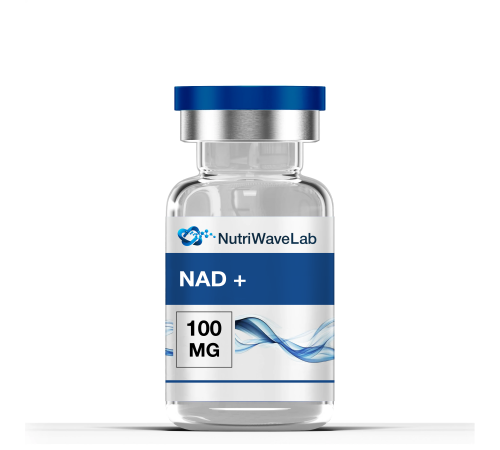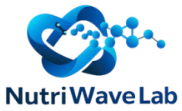
NAD+ (Nicotinamide Adenine Dinucleotide)
Introduction Nicotinamide Adenine Dinucleotide (NAD+), the oxidized form of NADH, is a vital coenzyme found in every cell of the human body. It plays a critical role in various biological processes, from cellular energy production to maintaining brain function. As a naturally occurring compound, NAD+ has gained attention for its potential to improve muscle function, protect nervous system cells, and reduce the effects of aging.
Clinical Benefits Research has demonstrated that NAD+ may be beneficial in the treatment and management of several conditions, including:
Alzheimer’s Disease and Dementia: NAD+ may
support cognitive function, combat neurodegenerative disorders, and improve
memory and concentration.
High Blood Pressure and Cholesterol: By
influencing cellular metabolism, NAD+ can assist in regulating blood pressure
and managing cholesterol levels.
Chronic Fatigue Syndrome: NAD+
supplementation can enhance energy production, alleviating symptoms of chronic
fatigue.
Depression and Mental Health: Acting as a
brain fuel, NAD+ can improve mental clarity, boost mood, and support overall
brain health.
Athletic Performance: Due to its role in
cellular energy production, NAD+ is beneficial for enhancing athletic performance
and reducing exercise-induced fatigue.
Anti-Aging Effects: NAD+ helps to slow down
the aging process by supporting DNA repair, promoting cellular longevity, and
protecting against age-related pathologies.
Mechanism of Action NAD+ plays a central role in cellular energy metabolism. It is essential for the function of mitochondria, the powerhouses of cells, where it facilitates the conversion of nutrients into energy. As we age, the natural levels of NAD+ in our bodies decline, leading to reduced cellular function and the onset of age-related conditions.
One of the key anti-aging functions of NAD+ is its ability to extend the length of telomeres, the protective caps at the ends of chromosomes that shorten with age. Additionally, NAD+ activates specific proteins, such as SIRT1 and PARP1, which are involved in DNA repair and cellular longevity. This makes NAD+ a powerful ally in combating the signs of aging.
Administration NAD+ can be administered via intravenous or intramuscular injections, especially for conditions like depression and Parkinson’s disease. By replenishing the body’s NAD+ levels, these treatments help to restore cellular energy and improve brain function.
Conclusion As a crucial coenzyme, NAD+ serves as a powerful tool for enhancing overall health and wellness. Whether by boosting athletic performance, combating neurodegenerative diseases, or slowing down the aging process, NAD+ supplementation can have far-reaching benefits across various systems of the body. As research continues, the potential applications of NAD+ are expected to expand, making it a key player in modern health and longevity science.
NAD+ Research Nicotinamide adenine dinucleotide (NAD+) is a vital coenzyme involved in numerous cellular processes, such as energy metabolism, DNA repair, and cellular signaling. As we age, NAD+ levels naturally decrease, which is linked to the development of age-related conditions. Research indicates that boosting NAD+ levels can have positive effects on metabolic disorders like type 2 diabetes, metabolic syndrome, and nonalcoholic fatty liver disease.
NAD+ and Anti-Aging Effects The reduction of NAD+ levels with age has been associated with the onset of several age-related diseases, including cancer, diabetes, cardiovascular diseases, and neurodegenerative conditions. Recent studies suggest that increasing NAD+ levels can help reduce oxidative cell damage in tissues, such as the brain, and promote healthy aging. Approaches to boost NAD+ levels, including NAD+ precursors and CD38 inhibitors, have shown significant effects in aging mice, even reversing certain aspects of aging.
NAD+ boosters like nicotinamide mononucleotide (NMN) and nicotinamide riboside (NR) have shown potential in addressing a variety of diseases and conditions, including metabolic syndrome, type 2 diabetes, cancer, cardiovascular disease, and neurodegeneration. In aging mice, NMN treatment has been found to enhance vascular function and decrease age-related changes in gene expression.
NAD+ and Energy Production NAD+ is essential in glycolysis and the citric acid (TCA) cycle, facilitating electron transfer and forming NADH during ATP production. NADH is a key electron donor in oxidative phosphorylation within the mitochondria, driving ATP generation. These reactions support the energy demands of cells, particularly neurons, which rely heavily on glucose metabolism under normal conditions.
Research has shown that brain NAD levels and the NAD+/NADH redox ratio are positively correlated with ATP levels and energy production rates. Furthermore, a metabolic pathway linking NAD to membrane phospholipid metabolism, energy production, and aging has been identified. These findings highlight the crucial role of NAD+ in maintaining energy balance and supporting cellular functions.
NAD+ and Addiction Recovery Recent research suggests that NAD+ and related enzymes can influence critical signaling processes involved in the neurobiology of addiction. This implies that increasing intracellular NAD+ levels could serve as a promising target for managing addiction, helping reduce cravings and withdrawal symptoms in people struggling with substance dependence.
A study by Braidy et al. (2018) demonstrated that intravenous NAD+ therapy has been used as a holistic approach to managing withdrawal symptoms, reducing anxiety and depression, and improving overall quality of life within 3-7 days of treatment.
NAD+ and Cognitive Function NAD+ is thought to have potential cognitive-enhancing effects, particularly in the context of aging and neurodegenerative diseases. One study found that an NAD+-dependent deacetylase, SIRT1, plays a critical role in the protective effects of testosterone against oxidative stress-induced endothelial aging, which is linked to cognitive decline during aging.
Another study found that Sirt6, a NAD+-dependent protein deacetylase, plays a key role in energy metabolism and supports neuronal plasticity and cognitive behaviors. Overexpression of Sirt6 was found to reverse cognitive impairment and reduced functional connectivity caused by chronic sleep deprivation. This suggests that Sirt6 may regulate various transcriptional factors and metabolic enzymes, thereby affecting brain function after prolonged sleep deprivation.
NAD+ and Metabolism NAD+ plays a significant role in metabolism, serving as a cofactor in many redox reactions related to energy production, glycolysis, the tricarboxylic acid (TCA) cycle, oxidative phosphorylation (OXPHOS), fatty acid oxidation (FAO), and serine biosynthesis. NAD+ is also a substrate for different signaling enzymes, such as sirtuins, PARPs, and cADPRS.
In mitochondria, NAD+ is a key cofactor for enzymes involved in metabolic pathways. The mitochondrial inner membrane is largely impermeable, requiring cofactors like NAD+ to be synthesized within the mitochondria or transported into the organelles. Mutations in genes responsible for cofactor transport can impair not only the transport process but also the activity of all mitochondrial enzymes that rely on that cofactor, as well as the metabolic pathways in which those cofactor-dependent enzymes are involved.
NAD+ is essential for various metabolic processes
throughout the body. Its importance in energy production, glucose metabolism,
and the functioning of different organs highlights the need to maintain NAD+
homeostasis. Ongoing research continues to explore the potential of NAD+ and
its precursors in treating various health conditions, particularly those
related to aging and metabolism.
NAD+ (Nicotinamide Adenine Dinucleotide)
Molecular Formula: C₂₁H₂₇N₇O₁₄P₂
Molecular Weight: 663.43 g/mol
Research Applications:
- Energy Production
- Addiction Recovery
- Cognitive Function
- Metabolism
- Pain Management
- Mental Health
- Heart Health
- Neurodegeneration
- Metabolic Disorders
- DNA Repair
Product Use: THIS PRODUCT IS STRICTLY FOR
SCIENTIFIC RESEARCH PURPOSES ONLY. It should only be used in laboratory
settings. All product information on this website is provided solely for
educational purposes. The law strictly prohibits introducing this product into
the body of humans or animals. Only licensed professionals should handle this
product. This product is not a drug, food, or cosmetic and should not be
improperly classified or used as such.
There are no reviews for this product.
No questions about this product.
